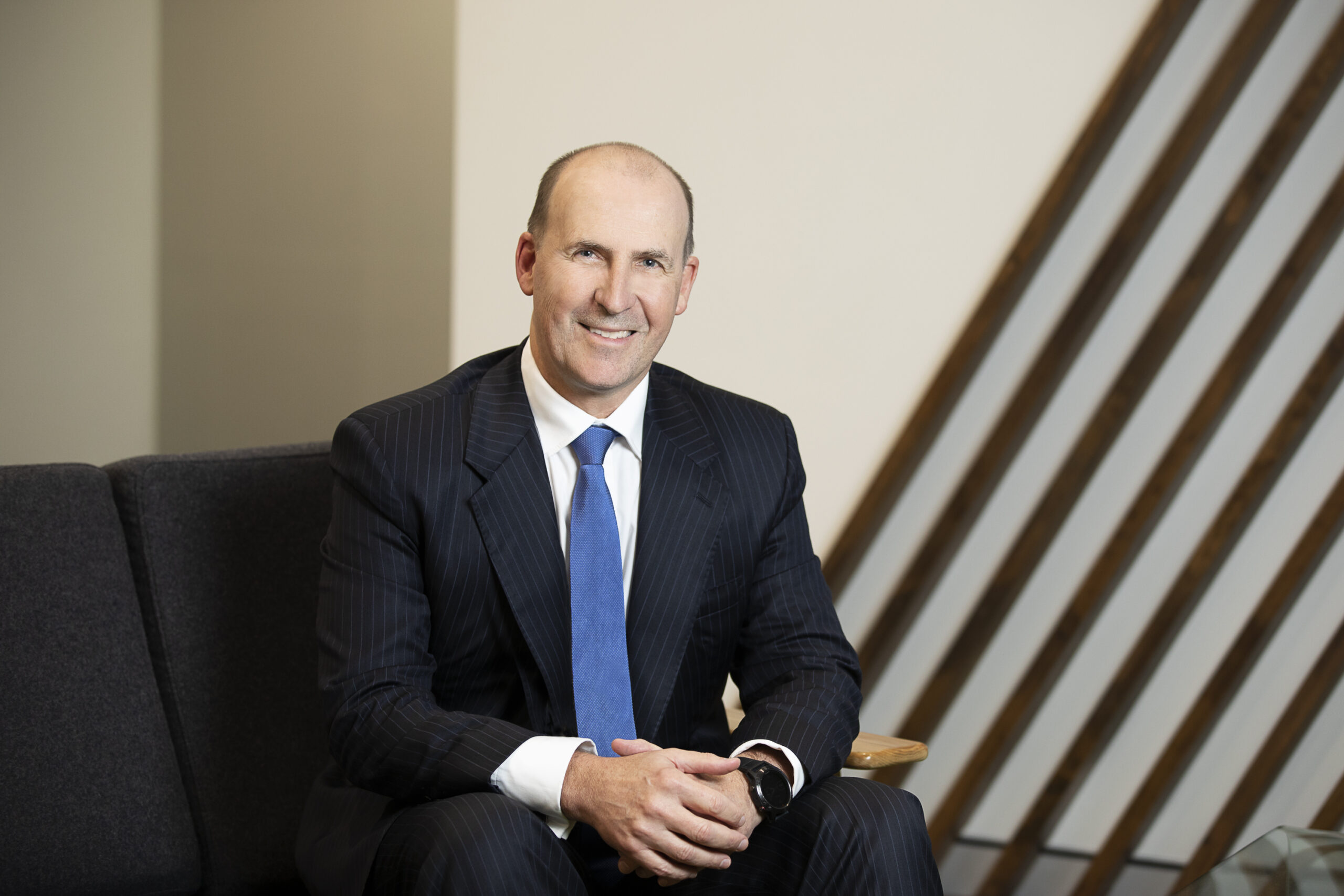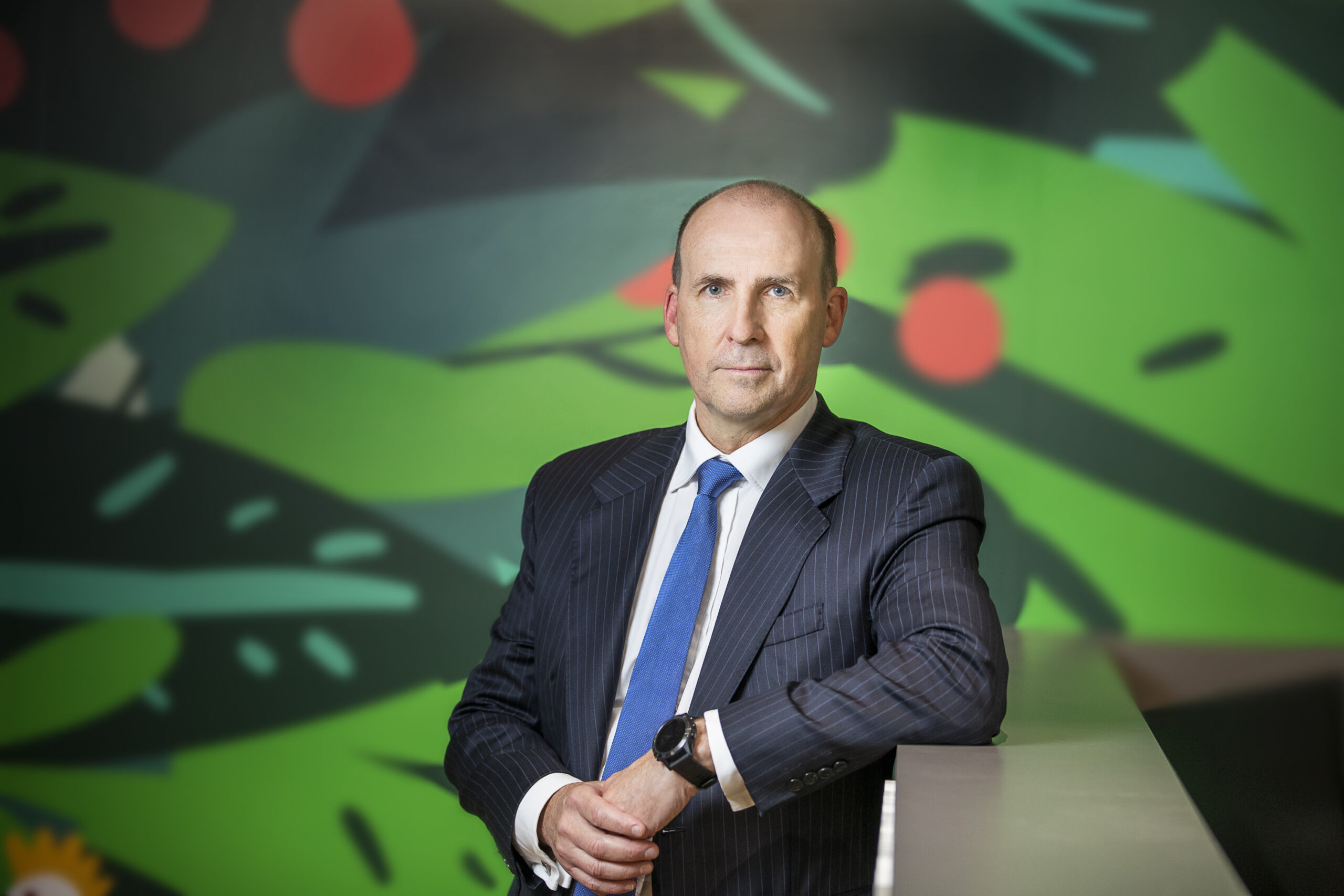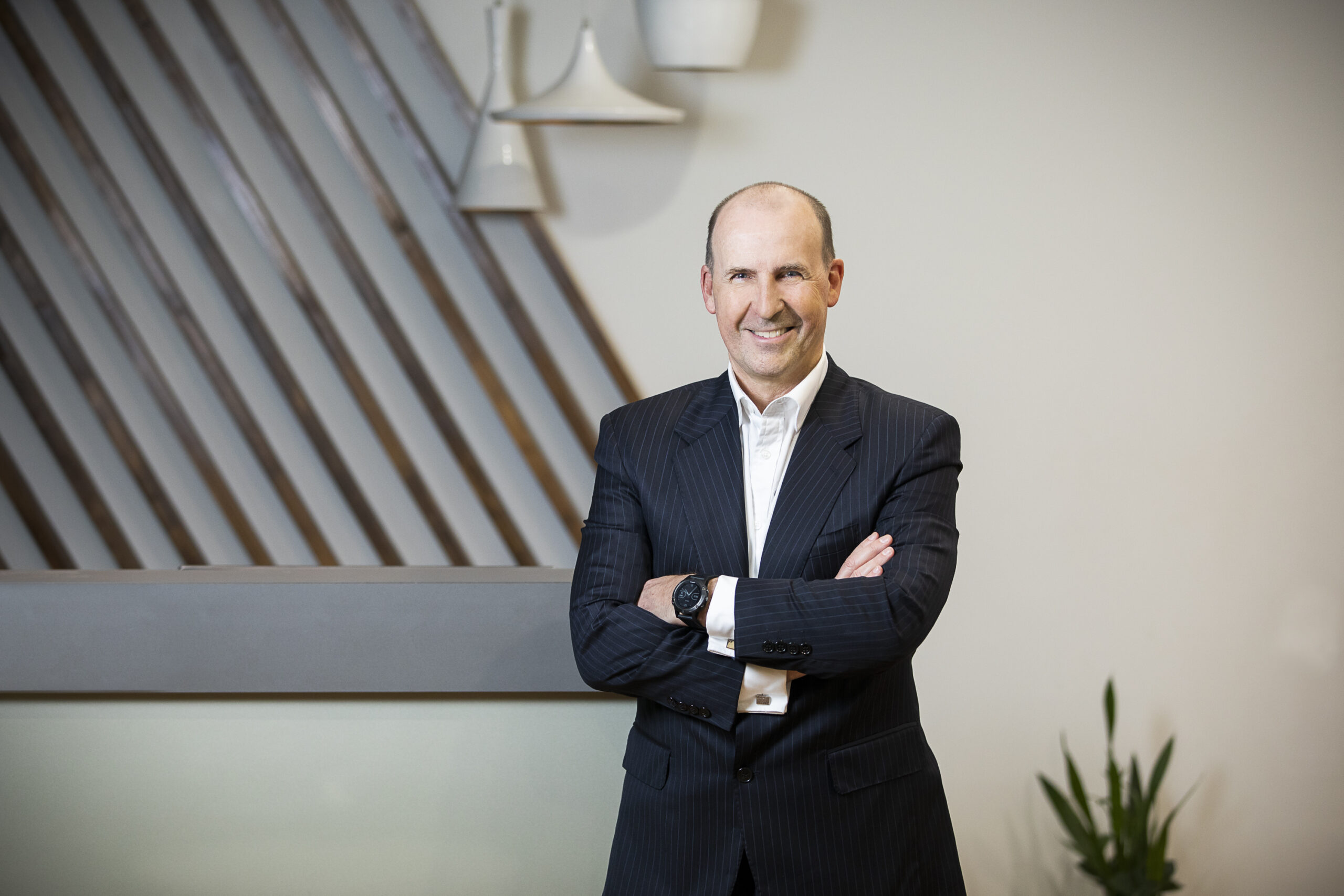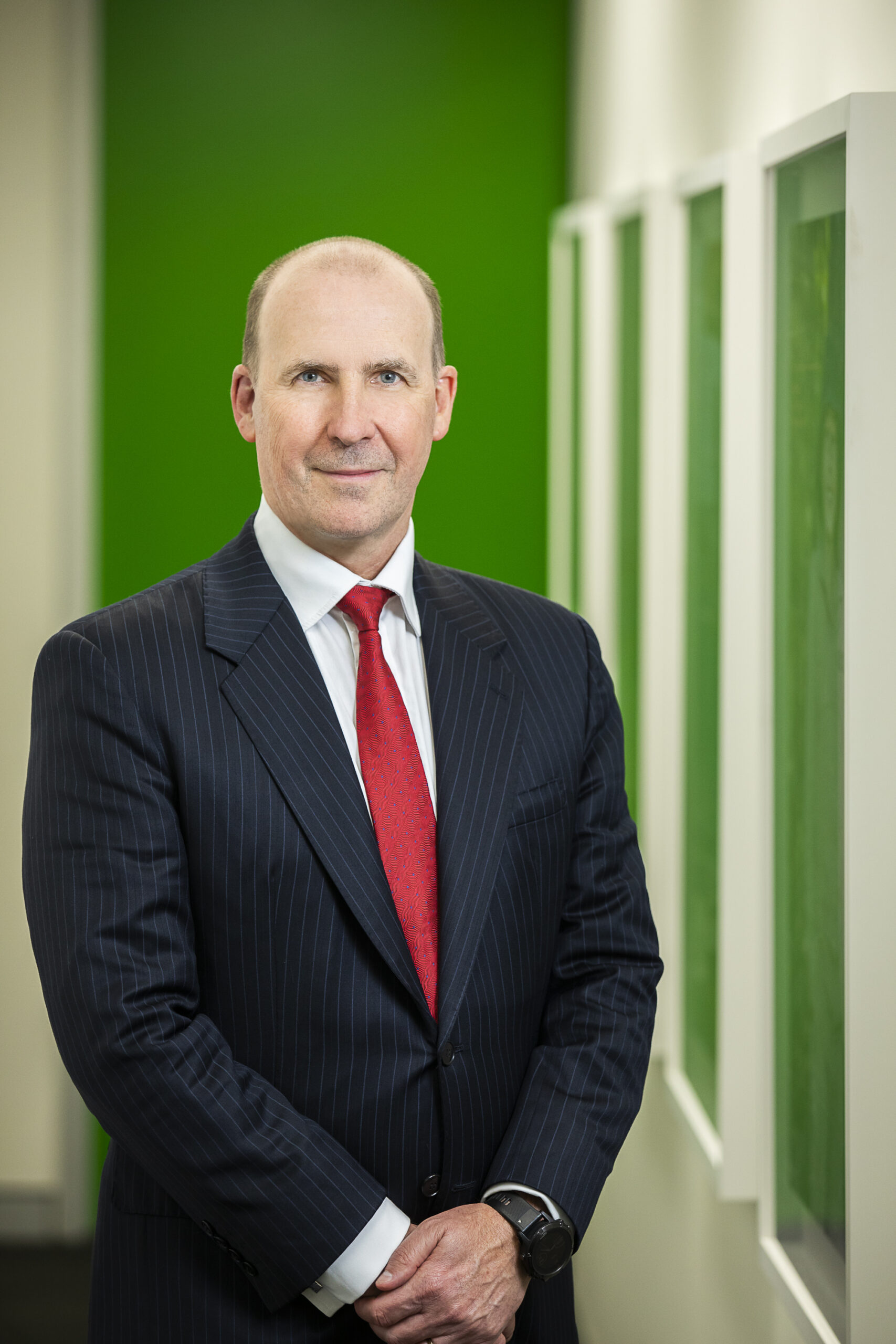As a child Phil Stockwell would go to the school library at lunchtime and research stocks in the paper. In 1983, he bought his first small-cap, Bass Strait oil and gas explorer, Weeks Petroleum, which was taken over by 1980s high-flying entrepreneur, Robert Holmes a Court. “I’ve always had a passion for finance and investing,” he says.
Today Stockwell is the chief executive of a superannuation fund, Active Super, that invests $13 billion of members’ retirement savings.
Active Super is the rebrand for Local Government Super, which was announced in late May.
But the rebrand is more than a name change.
Stockwell says the new name reflects a new era for the fund. Active Super, he says, will be more active than ever as a leader in responsible investing; more active in lowering fees (it just announced further cuts); and more active in the community.
But Stockwell also wants the fund’s members to become more active and ramp up their engagement with the fund and their super.
Stockwell is confident that if Active Super can live its new name, the fund can elevate its profile and attract new members, which will help it survive and thrive as a mid-sized player in an industry increasingly dominated by giants.
“It’s really not known outside of the local government sector,” he says. “So the rebrand is a really good opportunity to broaden the appeal.”

A passion in investing meant business
Stockwell was born in Brisbane, but both parents were teachers who moved around Queensland. He ended up at seven different schools, the last was Rockhampton Grammar School.
His passion for investing meant a career in business was an obvious choice, so he took a Bachelor of Commerce at the University of Queensland (UQ), followed by a Bachelor of Economics.
Stockwell joined KPMG as a Chartered Accountant after he graduated from university. “It was just a great background because you learn those professional ethics and disciplines that come with the big four-type firms.”
But when he was out working with clients, Stockwell found himself seeing ways his client could improve their business. Stephen Lonie, who became managing partner of KPMG in Brisbane, helped Stockwell move into the firm’s management consulting arm.
After completing a full-time MBA at the Australian Graduate School of Management in Sydney, Stockwell joined elite consulting firm McKinsey & Company, including a stint in New York.
After McKinsey he was working for a dot-com start-up on the West Coast of the US when he decided to return to Australia and joined Westpac and moved into BT Investment Management, now Pendal Group, where he ended up as Chief Operating Officer.
“That was a good transition for me because I was able to utilise the strategic thinking experience at McKinsey and move to a management and leadership role within the investment industry.”
Stockwell says his time at BT was a career highlight. “When we IPO-ed it into a separately listed company, that was a really exciting time. We created a new listed entity and then built a focused investment management business with its own separate culture and leadership team.”
Another career highlight was his next role at Eastspring Investments, the Asian asset management arm of Prudential, which he joined in 2014, becoming Chief Operating Officer and CEO of the Singapore office. “
A key career mentor has been Guy Strapp, now the chairman of Platinum Asset Management, who Stockwell met when Strapp was at BT. Strapp encouraged him to secure senior positions at both BT and Eastspring. “Guy has backed me to succeed in roles that I hadn’t done before and that’s enabled me to take some big steps in my career,” he says.
“I’ve been fortunate to work with some tremendously talented and inspirational professionals and business leaders in my time, and I’m hugely indebted to them for that. I’ve learned a lot from them and someone taking a personal interest in your development and career is a great thing.”
When Stockwell returned from Asia in 2019, the opportunity to become CEO of Local Government Super (LGS) emerged.
“I’ve been fortunate to work with some tremendously talented and inspirational professionals and business leaders in my time, and I’m hugely indebted to them for that. I’ve learned a lot from them and someone taking a personal interest in your development and career is a great thing.” When Stockwell returned from Asia in 2019, the opportunity to become CEO of Local Government Super (LGS) emerged.
A secret pioneer of responsible investing
LGS began in 1997 as the industry fund for local government employees in NSW and moved to public offer status in 2009. “In many ways it’s a well-kept secret,” Stockwell says. “The fund has a proud history of 20 years of being a pioneer of responsible investment and delivering strong investment performance and great service to members, not only in the city but in regional areas as well, which resonated with me. And it’s got a team of talented and dedicated staff, many of whom have been here for a long time.”
In late May this year, LGS rebranded as Active Super. Stockwell says the word ‘active’ captures “who we are as a fund.
“We’re active in our investment style; we’re active in the investments that we choose; but we’re also active with our membership base and in the community.”
ESG remains a core differentiator of the fund. Active Super is celebrating 20 years of having divested from tobacco, the first super fund to do so. It has also won SuperRating’s Infinity Award—awarded to the fund leading in sustainable behaviour—in seven of the past ten years.
Stockwell says Active Super is “the fund for people who would like to ensure their money is invested along with their beliefs about the future. We want to deliver good performance, but we want to deliver impact as well”.
Active Super is “the fund for people who would like to ensure their money is invested along with their beliefs about the future. We want to deliver good performance, but we want to deliver impact as well”.
When it comes to ESG, Active Super adopts a whole-of-fund approach; ESG is not just one investment option. The fund votes all its shares, both domestically and internationally, and it engages directly with companies on ESG issues when necessary, both in equities and fixed income.

Active Super is one of only four Australian super funds with all products certified ethical by the Responsible Investment Association Australasia (RIAA).
A particular ESG focus has been its property portfolio, which it manages internally and is now carbon neutral. Stockwell notes Active Super has been able to slash carbon emissions in the portfolio by 42 per cent since becoming carbon neutral in 2019.
The direct property portfolio received a 6 Star Green Star – Performance rating from the Green Building Council of Australia. It was also the first NABERS-rated (a national rating system measuring the environmental performance of Australian tenancies and buildings) property portfolio to achieve carbon neutral certification in accordance with the Climate Active Carbon Neutral Standard for Buildings.
“We have really looked to implement our beliefs through that property port
folio, which I am particularly proud of.”
The benefits of being a mid-size fund
Active Super now has $13 billion in member funds and around 80,000 members, which puts it in the mid-size range in an era of mega funds and mergers.
Stockwell says Active Super is not looking at mergers at the moment. Instead, it is pursuing a “member-centric, organic-growth” strategy.
Stockwell believes Active Super’s size is actually its strength. The fund can invest in opportunities that are too small for larger funds.
The fund can invest in opportunities that are too small for larger funds.
But Active Super’s size also allows it to provide more personalised service to members. Stockwell notes that during the Covid-19 crisis, Active Super’s member engagement increased. “We were able to offer a very high-level service during that time. Our member engagement went up during the crisis and our member satisfaction scores reflect that.”
But Stockwell wants members to engage more. “The good thing about the Active name is that it really encourages our members to get active with their future and their savings so they can maximise their retirement benefits ,” he says.
Active Super is aiming to increase engagement with members by transforming the fund into a modern, mobile-first enterprise, Stockwell says. As part of the rebranding, it has also redesigned its website and is upgrading its app to make it easier for members.
More broadly, Stockwell believes there is a role for funds in superannuation, like Active Super, who are not giants, but who are performing well and offer good value-for-money fees.
When announcing the rebranding, Active Super announced it had cut fees a second year in a row. Accumulation Scheme members receive a total admin fee reduction of at least 4 per cent per annum, depending on balance size (a member with a $50,000 balance will save 5.2 per cent on annual admin fees); while Account Based Pension Scheme and Retirement Scheme members will get a reduction in weekly admin fees.

Active Super can deliver the fee cuts because it is operating more efficiently. “We’re always looking for those opportunities to do things more cost effectively.”
Looking at the track ahead
Stockwell has managed a high-performance career successfully, along with raising four children. (His youngest child is finishing year 12.) He says he has a tremendously supportive family, but mountain biking has also provided an important release.
“I tend to be pretty single-minded when I’m at work, and so it’s important to take time off to reflect, and let the mind process the events of the week. I find that just getting out in the bush on the bike is my way of doing that. It’s good to get the exercise, but it also allows your mind to switch off. And then it does its own thing. I find that’s my way of switching off and recovering.”
“I tend to be pretty single-minded when I’m at work, and so it’s important to take time off to reflect, and let the mind process the events of the week. I find that just getting out in the bush on the bike is my way of doing that. It’s good to get the exercise, but it also allows your mind to switch off. And then it does its own thing. I find that’s my way of switching off and recovering.”
For now, Stockwell is pedaling full tilt at Active Super. He’s focused on building a high-performing team and culture. “We want to be a fund that’s agile, collaborative and really focused on its members. As the CEO, I’m focused on just being the best CEO I can be, in a role that’s pretty challenging and demanding. The thing that I’m enjoying about the job is working with great people and continually learning. We are in an industry which is dynamic and exciting at the moment. And so, I see the key to my success here is developing an exceptional, high performing team and culture within Active Super. As to further beyond that? I haven’t given it too much thought.”










